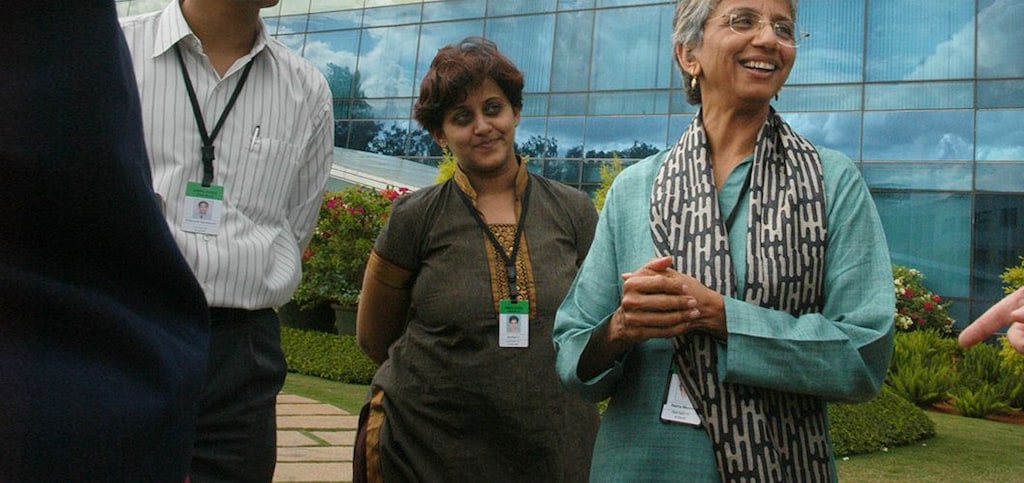The entrepreneurial revolution has gone global—and women are leading the charge. Although women here in the United States have been on the front lines of the fight for more than two decades, women around the globe, many from developing nations, are quickly catching up.
I’ve seen this firsthand over the past three years as I traveled to Brazil, India and Turkey, meeting scores of international women entrepreneurs at various states of business ownership, from startup to global expansion. The good news is these women don’t have to go it alone. There are organizations and events to help them come together, solve common challenges and exchange support.
The better news, according to Stephanie Goodell, owner of Samaya Consulting, is it’s easier to find women leading more than one company, which shows how far—and how fast—women are scaling globally. Goodell attributes this, in part, to women who are more eager to open doors, collaborate and help each other.
That’s not the only change. Elizabeth A. Vazquez, CEO and co-founder of WEConnect International, a nonprofit that helps empower women business owners globally, says in the past decade, she has also noticed a difference in the way women entrepreneurs think.
"[They’re] starting to think bigger about the potential of their businesses and the need to work with other women business owners to reach scale,” Vasquez says. “We see them competing for larger contracts and then leveraging their purchasing power with smaller women-owned businesses for sustainable and inclusive growth.”
What Women Need
Of course, learning to be a successful entrepreneur isn't an easy journey, and women entrepreneurs still lack resources. While there are definitely nuances in various global markets, Goodell notes, "it comes back to some basic needs: capital, mentors and broad networks that will open doors and make introductions for them.”
Vasquez agrees, adding "[Women] usually need access to markets, role models and champions, business education and training, and relevant technologies.”
But not all their needs are external. Ahu Serter, a serial entrepreneur, the owner of Casa Dell’Arte, and the founder of Arya Women’s Investment Platform in Turkey, says, “The main obstacle I see women facing is themselves. We need to change our mindsets, get rid of the guilt of inefficiencies and believe we can do anything we set our minds to. That's why we need to raise strong daughters and be good role models for them.”
Serter agrees financing is a big hurdle. “Family and friends financing makes women dependent on the men in their families," Serter says. "Some women are too risk-averse or have too little credit history to borrow from banks. To help them grow, we need to make smart investments available.”
Obviously, the entrepreneurs can’t fix this on their own, so they're looking to corporations and their countries' governments to provide assistance. Serter says that in Turkey, they need to grow the ecosystem. "We need for profit and not-for-profit companies to target women," she explains. "Women-led businesses are more socially responsible in the sense of corporate social responsibility, human rights, corporate governance, environmental issues and so on, and that leads to above-average returns in the long run.”
Setting A Good Example
In fact, that was a motivating factor for Serter to found Arya Women’s Investment Platform. “I want to help create good role models to inspire more women to take the leap," Serter says. "I believe the advancement of women in a society contributes to advancement of the society as a whole.”
According to a recent report from the World Bank, "Female entrepreneurs make significant contributions to economic growth and to poverty reduction around the world.” The World Bank also found women reinvest an average of 90 percent of their income in their families and communities, compared to a 30 to 40 percent reinvestment rate for men.
The study agrees, however, with everyone I spoke to about what women need, particularly globally, saying, “While the number of women operating their own business is increasing globally, women continue to face huge obstacles that stunt the growth of their businesses, such as lack of capital, strict social constraints, and limited time and skill.”
Help can come in many forms. Goodell, who has consulted for several large corporations, believes businesses that help women entrepreneurs grow globally have a lot to gain. She says, “[Companies] should do what they do best—position their brands at the center of the conversation."
To get a global view of how women entrepreneurs are faring, check out The Gender Global Entrepreneurship and Development Index (GEDI). The research shows that, “Globally, women and men are not on a 'level playing field' in terms of access to resources, which continues to impact women's ability to start and grow businesses.” The Gender GEDI report says, “Gendered attitudes, social norms and beliefs can result in more limited access to resources critical for development such as education, skills and finance.”
It’s obvious from their growth—the World Bank reports in the developing countries there are about 8 million to 10 million formal small and medium enterprises (SMEs) with at least one female owner—that women worldwide aren’t letting these factors hold them back. And each one of us, man or woman, can do our part.
As Goodell says, “We all need someone to believe in us, and then ask, ‘How can I help?’”
Read more about women entrepreneurs.
Photo: Getty Images




